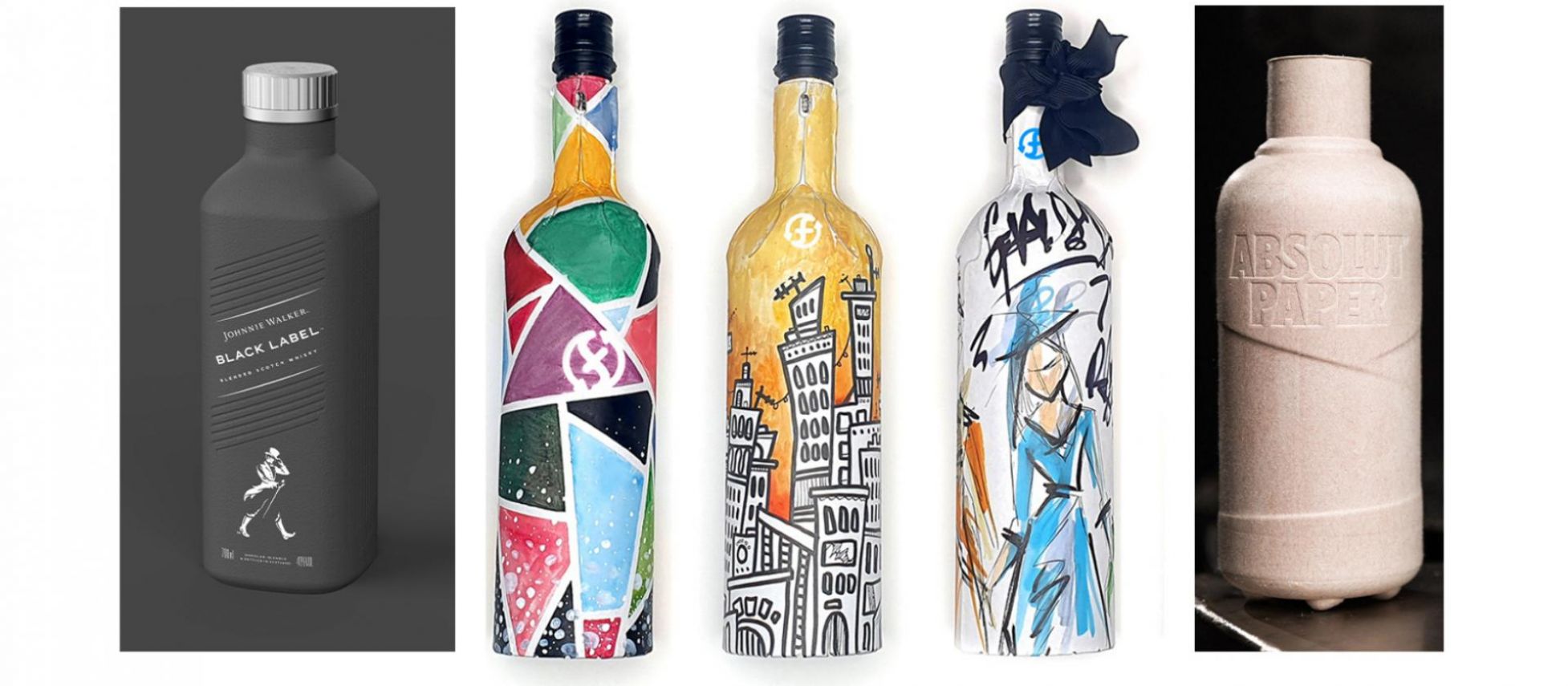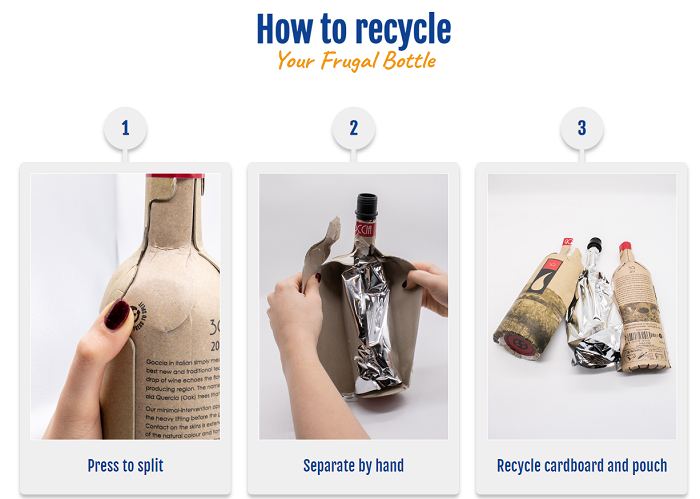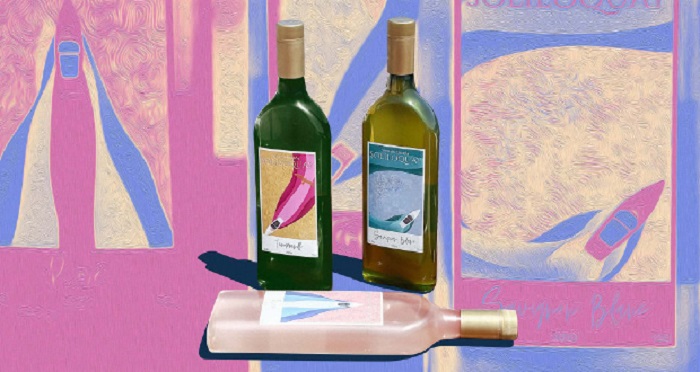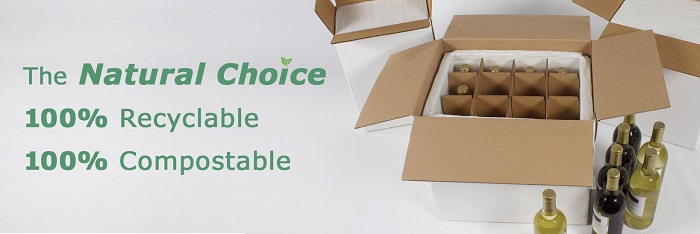Blog
Insights
Revolutionizing the Alcohol Beverage Industry: The Impact of Eco-Friendly Packaging

Examining the global impact of eco-friendly packaging in the alcohol beverage industry.
The alcoholic beverage industry has always been associated with luxurious and indulgent experiences. However, as global awareness regarding environmental issues continues to rise, the industry is facing growing pressure to adopt sustainable practices. Traditional packaging methods in the industry often involve excessive use of single-use materials, leading the alcobev industry to be one of the significant contributors of waste generation and carbon emissions. With the continuous shift of consumer preference to sustainable and environmentally friendly products, by implementing eco-friendly alternatives for their packaging companies can meet the expectations of environmentally conscious consumers. Adopting eco-friendly packaging demonstrates a company's commitment to environmental stewardship and responsible business practices. Intending to reduce waste, minimize carbon footprints, and preserve natural resources, eco-friendly packaging is reshaping the alcohol beverage industry and revolutionizing the way products are presented to consumers.
Reducing Waste
Traditional packaging methods in the alcohol beverage industry often involve excessive use of single-use materials, resulting in substantial waste generation. However, eco-friendly packaging offers an alternative approach that significantly reduces waste production. Materials such as recycled paper, biodegradable plastics, and plant-based fibers are increasingly being used to develop packaging solutions that are both sustainable and visually appealing.

Source: Frugalpac
By embracing eco-friendly packaging, companies in the alcohol beverage industry can actively contribute to waste reduction efforts. These packaging materials have a significantly lower impact on the environment, as they decompose more rapidly and generate fewer greenhouse gas emissions compared to their non-biodegradable counterparts. Additionally, innovative packaging designs can also facilitate recycling and reusability, further enhancing the sustainability of the industry. An illustration of this commitment can be seen in Signal 7 Wines, which utilizes cellulose-fiber paper bottles. These bottles are manufactured from 94% recycled paperboard and are completely free from chemicals, exemplifying the company's dedication to eco-friendly packaging solutions.
[[relatedPurchasesItems-62]]
Minimizing Carbon Footprints
In addition to waste reduction, eco-friendly packaging is crucial in minimizing the carbon footprints of alcoholic beverage products. Traditional packaging methods often involve extensive transportation and energy-intensive manufacturing processes, contributing to greenhouse gas emissions. In contrast, eco-friendly packaging focuses on reducing the energy consumption and emissions associated with production, transportation, and disposal.

Source: Packaging News
The adoption of lightweight packaging materials, such as bio-based plastics or cardboard, helps decrease fuel consumption during transportation. By employing sustainable packaging practices, companies can align their operations with environmental stewardship and demonstrate their commitment to combating climate change. An instance of this dedication can be observed in Garçon Wines, which opts for 100% recyclable PET (Polyethylene Terephthalate) plastic for its packaging. These PET bottles are transparent, sturdy, and lightweight. They not only offer efficient space utilization but also facilitate easier loading and unloading, resulting in expedited delivery while reducing emissions by 50%.
Preserving Natural Resources
Using eco-friendly packaging means choosing materials in a responsible way to protect our environment. People now want companies to be honest and ethical, so alcohol companies have to be careful about where they get their packaging materials from. They need to use materials that come from renewable sources, be careful when cutting down trees, and use less water when making their packaging. By prioritizing eco-friendly packaging, companies play a pivotal role in preserving Earth's ecosystems. Responsible material sourcing contributes to forest protection, and biodiversity conservation, and alleviates the strain on natural resources. This commitment to sustainability aligns with consumers' values, as they increasingly seek out brands that genuinely prioritize environmental concerns.

Source: Nature-Pack
Consumer Perception and Market Opportunities
The shift toward eco-friendly packaging in the alcohol beverage industry goes beyond environmental benefits. It also aligns with changing consumer preferences and expectations. As sustainability becomes an integral part of the purchasing decisions of environmentally conscious consumers, companies that invest in eco-friendly packaging gain a competitive edge. Eco-friendly packaging presents an opportunity for alcoholic beverage companies to differentiate themselves in the market, attract a broader consumer base, and enhance brand loyalty. Consumers are more likely to choose products that align with their values, and by adopting sustainable packaging practices, companies can position themselves as socially responsible industry leaders.
The alcohol beverage industry is experiencing a transformation as it embraces eco-friendly packaging, which drives companies to adopt sustainable practices and tackle environmental issues. This shift towards eco-friendly packaging plays a crucial role in reducing waste, minimizing carbon footprints, and preserving natural resources, paving the way for a more sustainable future. By embracing these practices, companies not only contribute to the well-being of the environment but also open up new market opportunities and improve consumer perception. As the industry progresses toward a greener future, the adoption of eco-friendly packaging serves as a clear indication of the dedication of alcoholic beverage companies to establish a more sustainable and responsible business model. This model places a high priority on environmental preservation and aims to meet the evolving expectations of conscientious consumers who prioritize sustainability in their choices.
To discuss more sustainable alternatives to packaging, visit the 6th annual International Bulk Wine and Spirits Show in San Francisco on the 26th and 27th of July, 2023. IBWSS is set to host over 24 industry experts who will be sharing their insights and expertise on bulk production, private label, and supply chain, with an emphasis on diving deeper into the business aspects of these areas. Learn more about the event and get your exhibitor’s spot or visitor’s pass here.
Header Image Source: Packaging Digest
If you're a bulk wine or bulk spirits supplier, contract bottler, or private label producer aiming to connect with serious trade buyers, IBWSS San Francisco is the event you can't afford to miss. Get a quotation or Book a exhibitor table.

